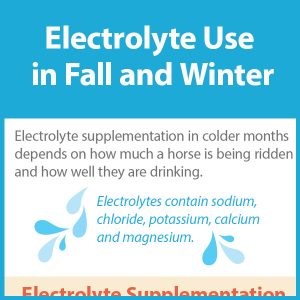
0
View Article
Electrolyte supplementation in colder months depends on how much a horse is being ridden and how well they are drinking. Horses that are ridden lightly a few times a week and drink well probably get sufficient electrolytes from hay, concentrate and salt block. Horses that train hard and sweat daily may require a well-formulated electrolyte supplement even in colder months.
» View Article
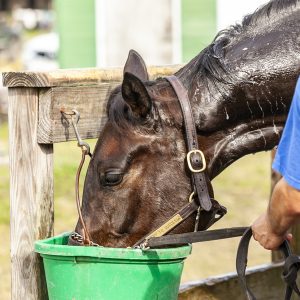
0
View Video
Maintaining proper hydration is extremely important not only to optimal performance but to the overall well-being of your horse. Summer Games® Electrolyte replenishes lost minerals and triggers the thirst response. Summer Games is concentrated so you can easily adjust the level you feed to meet your horse’s ever-changing needs.
» View Video

0
View Article
In order to maintain proper hydration, horses must drink significant quantities of water. In a cool environment, an inactive horse may drink around seven to 10 gallons daily. In a hot or humid environment, however, a horse might drink more than 20 gallons of water a day.
» View Article
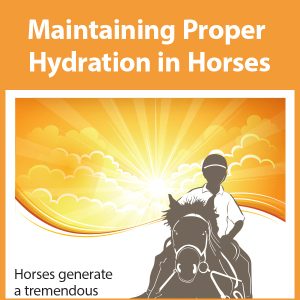
84
View Article
Horses generate a tremendous amount of heat in their bodies when they exercise or when they are stressed.
» View Article
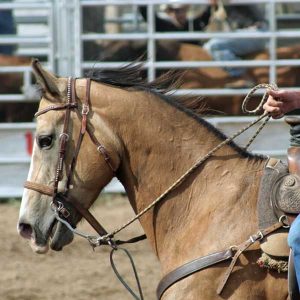
148
View Article
Electrolytes perform critical functions within your horse’s body. They help regulate nerve and muscle functions by carrying electrical impulses between...
» View Article
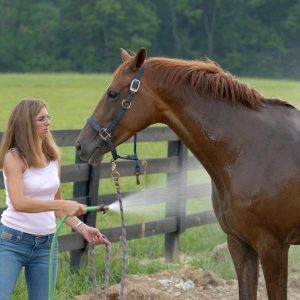
519
View Article
What is heat stroke and how do you recognize it? Heat stroke occurs when you horse’s natural cooling mechanisms fail...
» View Article
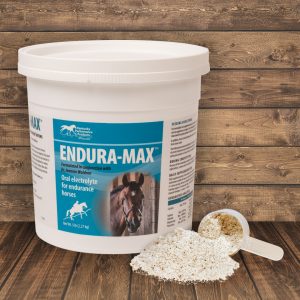
100
View Article
Why does my endurance horse need electrolytes in the first place? Electrolytes perform critical functions in the horse’s body. Most...
» View Article

600
View Article
To ride or not to ride, that is the question. Temperature alone is not a good guide when it comes...
» View Article
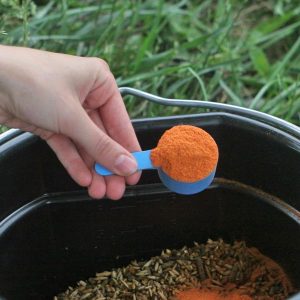
1,196
View Article
What are electrolytes? Imagine you are riding your horse on a hot summer day. If you do more than walk,...
» View Article

422
View Article
Travel Tips for Horses- Part 2: Nutritional Support While Traveling
» View Article
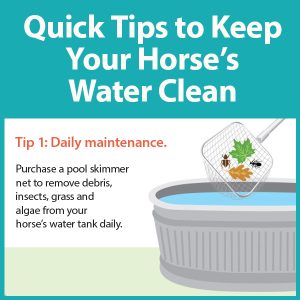
100
View Article
Click here to download a print version of this infographic. Text-only version of “Quick tips to keep your horse’s water...
» View Article
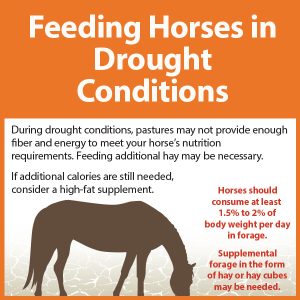
0
View Article
During drought conditions, pastures may not provide enough fiber and energy to meet your horse’s nutrition requirements. Feeding additional hay may be necessary. If additional calories are still needed, consider a high-fat supplement. Horses should consume at least 1.5% to 2% of body weight per day in forage. Supplemental forage in the form of hay or hay cubes may be needed.
» View Article
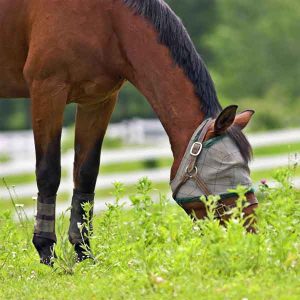
0
View Article
Mosquitoes are not just annoying; they pose a health risk for your horses. Mosquitoes spread several neurologic diseases: West Nile virus, eastern equine encephalomyelitis, and western equine encephalomyelitis.
It is important to vaccinate your horse to protect against these diseases as well as take steps to manage the mosquito population on your farm.
» View Article
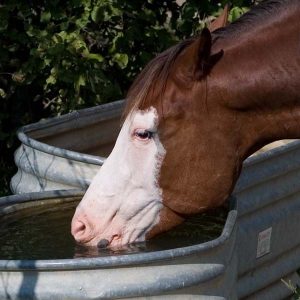
96
View Article
When it is hot out, exercise and other stressors can lead to dangerous dehydration. Horses generate a tremendous amount of...
» View Article
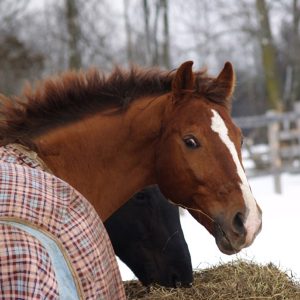
460
View Article
“I have only a few weeks’ worth of electrolyte supplement left in my bucket. With fall and winter approaching, do...
» View Article

178
View Article
Horses need to drink a minimum of 10 to 12 gallons of water a day to stay healthy, no matter...
» View Article
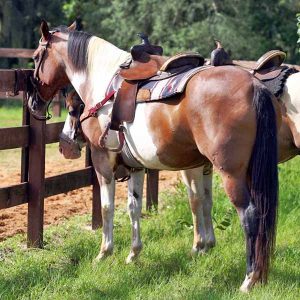
539
View Article
To ride or not to ride, that is the question. Temperature alone is not a good guide when it comes...
» View Article
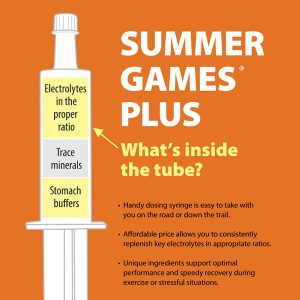
0
View Article
Click here to download a print version of this infographic. Text-only version of “Summer Games® Plus: What’s Inside the Tube?”...
» View Article
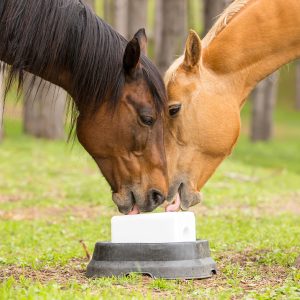
0
View Article
Electrolytes are a group of minerals that perform critical functions in the horse’s body. They are sodium (Na), potassium (K),...
» View Article
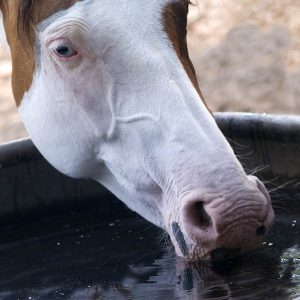
410
View Article
Interesting fact: Water makes up about 65% of a mature horse’s body weight. For a 15.2-hand, 1,000-pound horse, that amounts...
» View Article
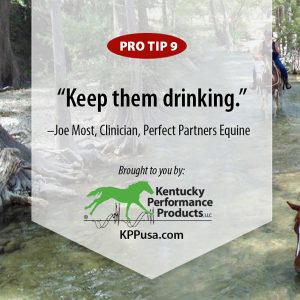
81
View Article
By Joe and Penny Most, equine clinicians and owners of Perfect Partners Equine.
Horses can be finicky drinkers, especially in the winter and when traveling. For our horses we use electrolytes daily in their feed to encourage them to drink. Oftentimes when a new supplement…
» View Article
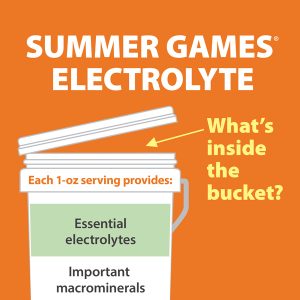
314
View Article
Electrolytes play a significant role in supporting hydration (thirst response), muscle function, and the cellular water balance within your horse’s body.
» View Article
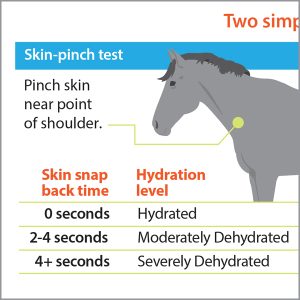
2,688
View Article
Sweating is the process horses use to cool themselves when their body temperature rises. When a horse sweats they...
» View Article

311
View Article
If you’ve spent any time around a stable during the summer months, then you are probably acquainted with the smell...
» View Article

























